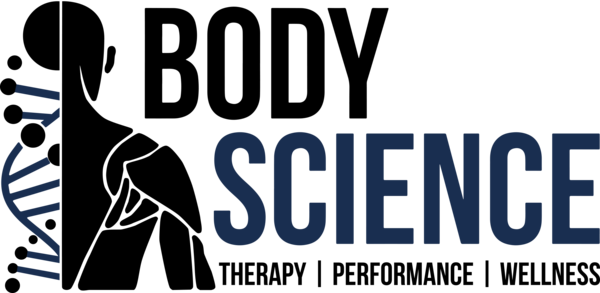
Frozen shoulder, or adhesive capsulitis, is a painful and restrictive condition that limits movement in the shoulder joint. It can make everyday tasks—like reaching overhead, dressing, or even sleeping—uncomfortable and frustrating. If you’ve been struggling with frozen shoulder, you may have tried traditional approaches with little success. Physiotherapy treatments focus on addressing the root cause of the issue, providing lasting pain relief and restoring movement efficiently. In this blog, we’ll explore how physiotherapy can help manage and treat frozen shoulder at each stage, and what to expect during treatment and recovery.
Understanding Frozen Shoulder
Frozen shoulder, or adhesive capsulitis, is a condition where the shoulder joint becomes painful and stiff, often limiting movement for months at a time. It typically develops gradually and progresses through three stages: freezing (increasing pain and reduced motion), frozen (stiffness with less pain), and thawing (slow return of mobility).
The condition can occur after injury, surgery, or prolonged immobility, and is more common in individuals over 40 or those with conditions like diabetes or thyroid disorders. While the exact cause isn’t always known, the result is a thickening and tightening of the joint capsule that restricts movement.
Without treatment, frozen shoulder can take a year or longer to fully resolve. Early physiotherapy intervention is key to managing symptoms, maintaining range of motion, and speeding up recovery.
How Physiotherapy Helps with Frozen Shoulder
Physiotherapy plays a key role in treating frozen shoulder by targeting the underlying restrictions that cause stiffness and pain. At Body Science Therapy, treatment focuses on restoring movement through a root-cause approach.
- Manual Therapy: Hands-on techniques address joint capsule tightness and improve soft tissue mobility, helping restore range of motion.
- Guided Movement Training: Gentle mobility work is introduced progressively to regain functional movement without aggravating symptoms.
- Muscle Activation: Exercises target underactive muscles to restore balance in the shoulder girdle and support long-term stability.
- Neurological Reprogramming: Techniques like Dolphin Neurostim (MPS) and Neurokinetic Therapy reset dysfunctional movement patterns and reduce nervous system-driven muscle guarding.
- Education and Self-Care: Clients learn safe movement strategies and postural awareness to reduce strain and support healing.
This multi-layered approach promotes faster, more sustainable recovery than passive modalities alone.
Best Physiotherapy Exercises for Frozen Shoulder
Exercise is central to frozen shoulder rehab, helping restore mobility and strength through controlled movement. Each exercise is selected based on the individual’s current phase of recovery.
- Pendulum Swings: Gentle circular movements that promote joint lubrication and reduce stiffness.
- Wall Walks: Helps improve overhead reach while encouraging controlled, gradual movement.
- Shoulder External Rotations: Restores rotation and builds rotator cuff strength for joint stability.
- Cross-Body Reaches: Improves flexibility across the shoulder and reduces tension.
- Scapular Stabilization: Activates supporting muscles like the lower trapezius and rhomboids for better shoulder mechanics.
- Isometric Holds: Builds strength without straining the joint, ideal in early stages.
Exercises are integrated with manual therapy and adjusted as mobility improves.
How Long Does Physiotherapy Take to Heal Frozen Shoulder?
The duration of recovery from frozen shoulder can vary depending on factors like the stage of the condition, how long symptoms have been present, and the individual’s overall health. Traditionally, frozen shoulder is known to take several months or even up to a year to resolve, especially with passive or generalized treatment approaches. However, with a targeted physiotherapy plan that addresses the root causes—such as capsular tightness, muscle imbalances, and neurological dysfunction—improvement can often be seen much sooner.
At Body Science Therapy, many of our clients begin to notice measurable progress within the first few weeks of treatment, with full recovery commonly achieved within 2 to 4 months. The speed of recovery depends on consistency, adherence to the home program, and how early treatment is initiated. A customized treatment plan ensures that progress is steady, efficient, and tailored to each person’s unique presentation.
Frozen Shoulder Treatment: How Physiotherapy Helps Reduce Pain and Improve Mobility
Physiotherapy is one of the most effective non-invasive options for both reducing pain and improving mobility in individuals with frozen shoulder. The pain and stiffness often experienced with this condition are caused by a combination of joint capsule tightness, inflammation, and altered neuromuscular control. Physiotherapy addresses all of these factors simultaneously.
At Body Science Therapy, treatment goes beyond surface-level symptom relief. Through techniques that release restricted tissues, correct faulty movement patterns, and stimulate the nervous system, people often experience reduced pain, smoother movement, and greater functional ability. Many individuals who have spent months struggling with conventional modalities report significant breakthroughs in mobility and comfort after switching to a more specialized, hands-on approach.
When to Start Physiotherapy for Frozen Shoulder
Starting physiotherapy early—ideally in the “freezing” phase—can limit progression and lead to quicker recovery.
- Early Assessment: Helps identify the stage of frozen shoulder and tailor treatment accordingly.
- Slows Stiffness Progression: Early intervention reduces inflammation and protects existing mobility.
- Prevents Compensations: Minimizes the risk of overloading other joints or muscles due to restricted shoulder movement.
- Better Recovery Outcomes: Individuals who start early often regain function faster and avoid chronic limitations.
- Adapts to All Stages: Even in later stages, physiotherapy helps restore function and supports long-term joint health.
The sooner treatment begins, the more effective and efficient the recovery process can be.
Is Physiotherapy Effective for All Stages of Frozen Shoulder?
Yes! Frozen shoulder progresses through three stages: freezing (painful), frozen (stiffness), and thawing (recovery). Our treatments adapt to each phase:
- Freezing Stage: Focus on pain relief, neurological resetting, and gentle movement strategies.
- Frozen Stage: Addressing deeper restrictions, enhancing mobility, and activating proper muscle function.
- Thawing Stage: Strengthening and retraining the shoulder for full range of motion and long-term resilience.
No matter which stage you’re in, our root-cause-focused approach ensures that treatment is effective and delivers lasting results.
Physiotherapy Session for Frozen Shoulder: What to Expect
Each physiotherapy session at Body Science Therapy is fully hands-on, with treatments adapted to your specific needs and stage of recovery.
- Dolphin Neurostim (MPS): Uses microcurrent therapy to reduce pain and improve tissue responsiveness.
- Neurokinetic Therapy (NKT): Identifies and corrects faulty movement patterns contributing to dysfunction.
- Manual Therapy: Targets joint stiffness and soft tissue tightness to improve range of motion.
- Customized Exercise Work: Reinforces mobility and strength gains through therapist-guided movement.
- Home Strategy & Education: Clients leave each session with actionable tips and exercises to support progress between visits.
Every session is designed to make tangible progress without relying on passive machines.
Experience Real Results
Physiotherapy provides an effective path to recovery from frozen shoulder by focusing on mobility, pain relief, and restoring functional movement. Whether you’re in the early freezing stage or nearing full recovery, the right treatment plan can help you regain control of your shoulder and return to daily activities with confidence.If you’ve been frustrated with slow progress elsewhere, our unique approach to physiotherapy can help you break through the plateau and regain full shoulder function. Located in Mississauga, Body Science Therapy is committed to delivering long-term results by addressing the root cause of your condition. Book an appointment today and start your journey to recovery.
